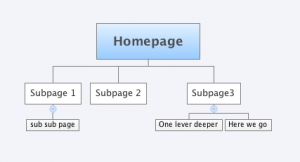It seems to me that everywhere you look there are “experts” telling you how to build a business plan or trying to sell you their sure-fire software that can magically do it for you. Everytime I see one of these pitches I laugh to myself, because there just isn’t a quick-fix magic-pill solution to developing a business plan. Many entrepreneurs want to outsource this task because they don’t feel that they have the expertise or the time. However, the best business plans that I have seen are simpler, shorter documents that look and feel that the owner wrote them personally. Somehow the passion, energy, and insight is so much more powerful than a prepacked fancy-format soul-less document that seems to be ubiquitous.
The first tip for you, is to decide what is your real purpose for developing a business plan. Many entrepreneurs think that they need a business plan so that they can get funding. While this is a legitimate reason for many:
“I strongly believe that the business plan is a foundational document that you need to personally write so that you can gain clarity about what you are really trying to accomplish. Said another way, taking the time to write out your story is much more for you, than it is for others.”
Coach Dave’s Tips on Developing a Business Plan
The order that I am listing is the sequence that you should write your plan. By working in this sequence you will find it to be easier to shape the overall document. You can re-order them later to be easier to read and understand.
Current Business Situation: This is the first step. Include your strengths, weaknesses, opportunities, and threats. Include major achievements, patents, prototypes, awards, contracts, locations, etc. Describe objectively why you have been successful. Clearly state the compelling reasons that anyone would invest in your business, buy from your business, or join your team.
Market Analysis: Research and portray, using specific numbers the size of the market that you are in. Explain the potential and identify your competitors. You won’t get much attention from anyone until you objectively show how your business fits and will excel in the marketplace.
Marketing Plan: This step is difficult and requires much thought and work. A well thought out marketing plan is the cornerstone of clarity. Most business owners underestimate how important a clear marketing plan is to success. Write out the purpose of your marketing, how it will be executed, a very specific target market, and who you aren’t targeting. Painstakingly scribe your unique selling proposition, and your business identity with a focus on your “why”.
Mission Statement: This is your high level statement that you make to your customers about what your business does. This defines who you are and what you intend to do. Don’t underestimate the power of a mission, vision, and cultural statements. These will become the touchstones for your business in the future.
Vision Statement: This is a focused message to your team. Write out what your business will become in the future. Be descriptive and aspirational about the final result.
Points of Culture: This section in developing your business plan is about how you and your people will act and what you will stand for. This should be aimed at your team and your customers. I have seen some great “pledges” done that are point of culture statements.
Business Strategy: Convince your audience (and yourself) about what you are trying to achieve and how. Be very specific and write more than you want to. You can edit this down later. Remember this is to help you figure out your strategy first. Lot’s of businesses fail because the strategy is flawed and the marketplace is misunderstood.
Financial Features: I recommend that this section in developing a business plan is about numerically identifying specific key performance measurements. How will you know if you are succeeding and what will the results look like? Include sales, leads, average sale, conversion rates, gross margins, profit, trends, and expectations.
Financial Requirements: Think about this section as the budget or believable and achievable financial model that is compelling enough for you to invest your own money in the business. This should include a P&L, a capex forecast, funding needs and sources, use of funds, etc.
If you devote the time to completing these sections when developing a business plan, you will have the 80% solution of a final document that you can make pretty later. These are tough to write, but critical. Remember, the purpose for developing a business plan is to force you to perform the critical thinking steps that are foundational for your long term success. Future investors can wait until you get it right, and I know that you will.
Business & Finance Articles on Business 2 Community(96)
Report Post





